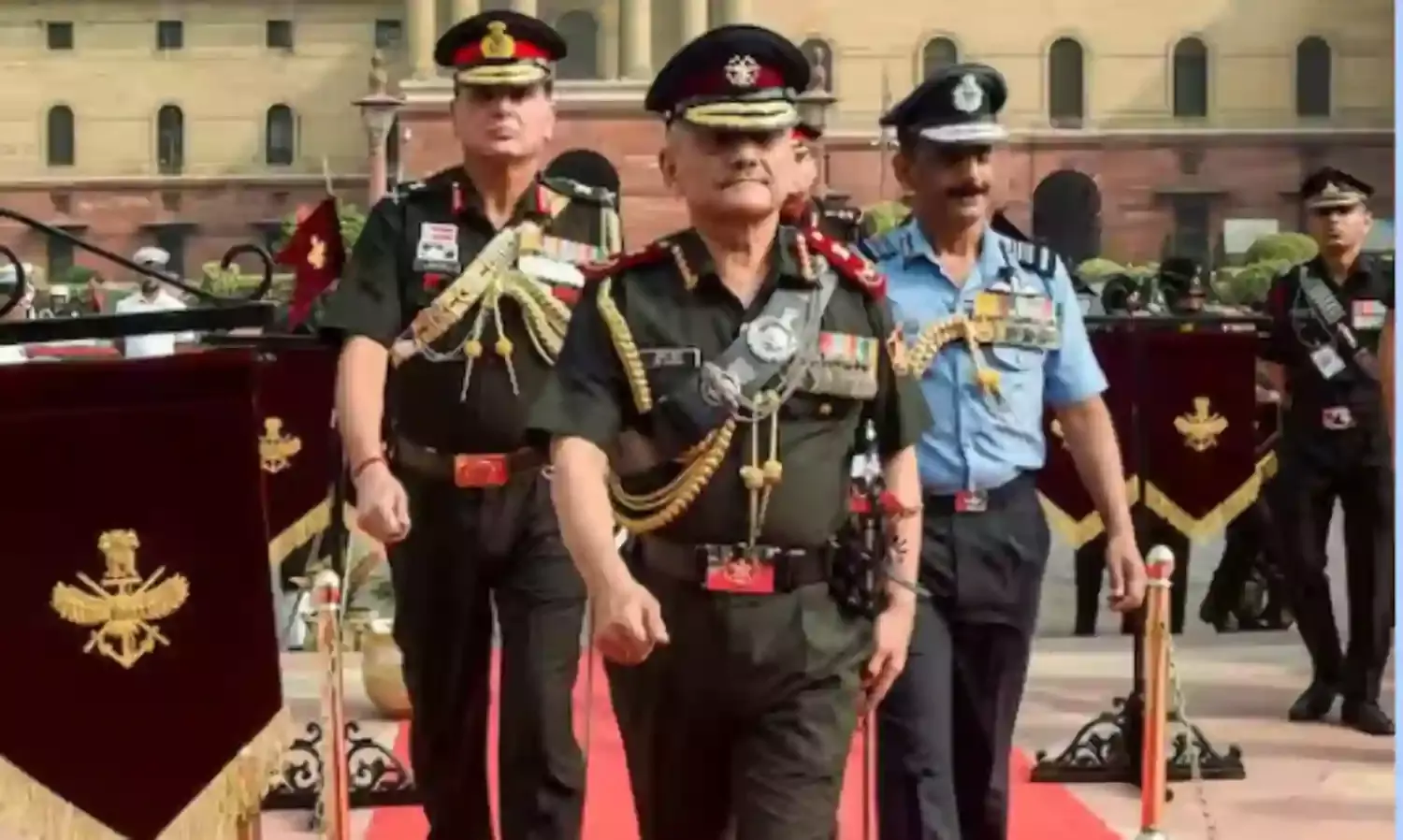The Receding Horizon Of Military Theaterisation
Integration of the 19 odd military commands, a formidable task.

At the United Service Institution of India recently, General Anil Singh Chauhan, Chief of the Defence Staff (CDS) delivered the Major General Samir Sinha Memorial Lecture.
Tasked with integrating and theaterising the 19-odd military commands, he pretty much confessed that the job was beyond him.
He talked of integrating logistics, communications, intel and everything else under the sun, but not about theaterizing the operational commands. Apparently, he thinks this task unachievable at least in the foreseeable future.
As senior officers and military veterans in the audience rolled their eyes knowingly at what General Chauhan did not say, the message got through with a bang. Does it come as a great big surprise to anyone? No. But one did not expect Chauhan to give up so publicly, so easily, on an initiative the Narendra Modi government has put much store by.
As a fairly low key type, Chauhan simply cannot replicate his predecessor the late General Bipin Rawat’s modus operandi of bullheadedly propelling the theaterisation programme, trampling on long nursed sensibilities without giving it much thought.
Like, for instance, his dismissing the air force as a “support arm” and. collaterally, its longtime opposition to changing the status quo. It instantly steeled the IAF’s negative attitude to what Rawat was trying to do.
Then again, Rawat never made any bones about his Gurkha officer’s (5/11 GR) attitude to solving a problem — beat it down! Reflecting this attitude of pushing on regardless, he had by August 2021 readied the first of the theatre commands for operations.
The Maritime Integrated Command, headquartered in Karwar, controlling the fighting assets administratively with the Western Naval Command, the Eastern Naval Command and the Andaman & Nicobar Command, was all set to go. A Vice Admiral was even selected to be its first Commander-in-Chief (CINC). And then the roof caved in.
IAF was not responsible for it. The senior babudom — the civil servants, was. The bureaucrats’ concern, as always when dealing with the military, was with protecting their positions in the pecking order, the ‘Warrant of Precedence’. To be fair, there was and is a problem with it that neither Rawat nor any agency of the government or military had bothered to address until then.
A CINC of a new Integrated Command would be 4-star rank. How and where would he fit in? On the same rank-level, would he be senior, equal or junior to the Services’ Chiefs of Staff? That could possibly be resolved by jigging the seniority issue into an inter se seniority metric, even though the officers in the three services are in differently sized cadres, and get promoted and rise in different timeframes. Still, there may be a way to resolve it.
The problem is knottier when civil servants come into the picture. In the prevailing system, the Defence Secretary, the head babu in the Ministry of Defence, is junior to and below the three Services chiefs in the Warrant. Would the newly appointed integrated theatre commanders — enjoying the same 4-star rank status as the services’ chiefs, also outrank the Defence Secretary?
Could they be placed at the Additional Secretary level but senior to the AdSec in the warrant?
The Indian Administrative Service, allergic to any hint of demotion, raised hell and stopped the theaterisation initiative in its tracks. Since August 2021 there's been no advance on that front.
The question is how did General Rawat get as far as he did in realising the Maritime Integrated Command without resolving the Warrant-related issues? Did he subsume a special dispensation, courtesy his fellow Pauri Garhwali, Ajit Doval — the National Security Adviser? If so, why can’t Chauhan — a Gurkha officer (6/11 GR) and another native of Pauri Garhwal, revive it?
Whatever the way out of this mess, one thing is clear. The diminutive General Chauhan’s nice, aggreeable, soft talking, dull and discursive method, is not working. But, at least, he is not consigned to the basement of South Block as General Rawat initially was, when appointed as the first CDS. That, I suppose, is progress.
Bharat Karnad is a defence and national security analyst. Views expressed here are the writer’s own.



